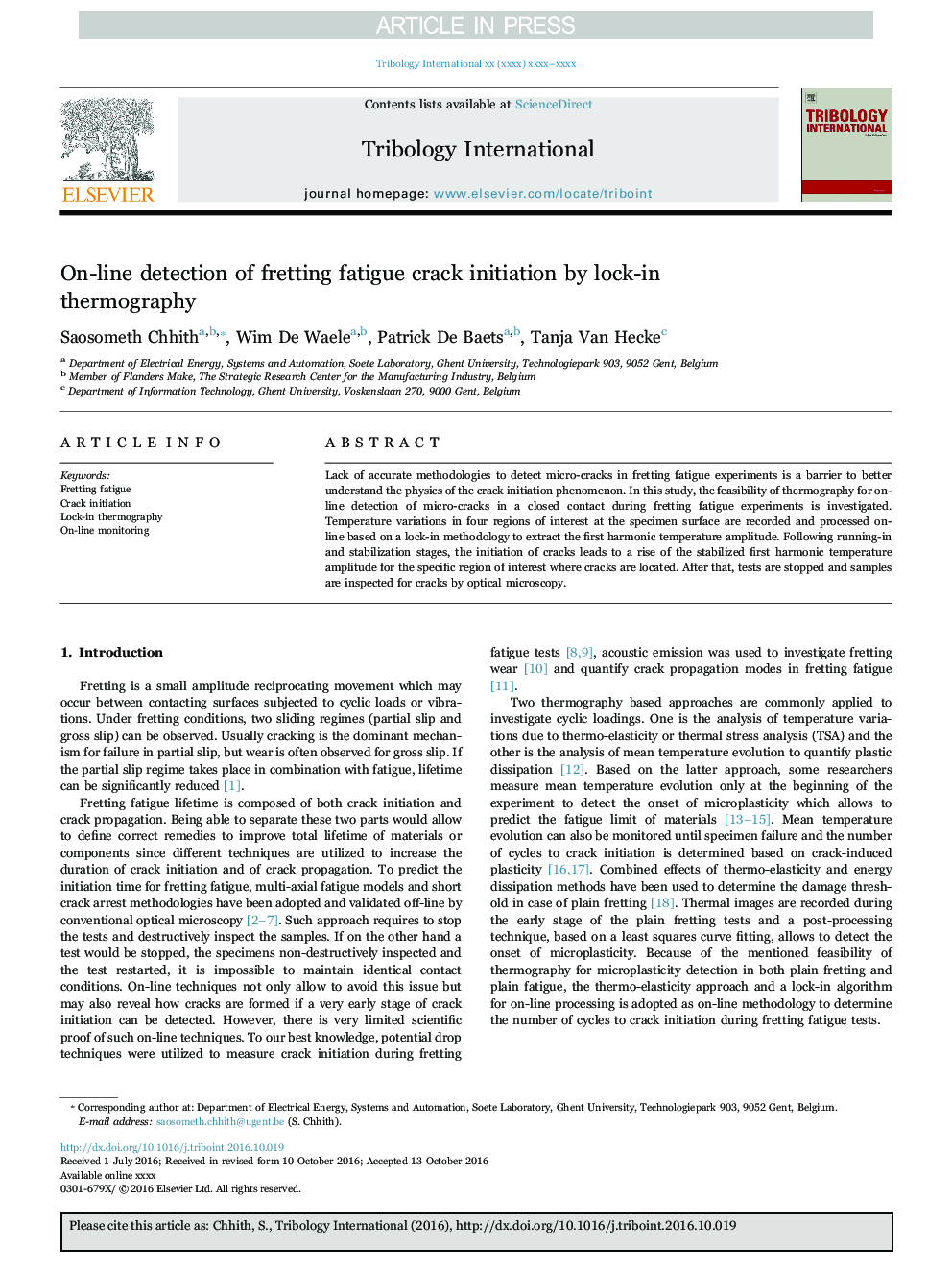| Article ID | Journal | Published Year | Pages | File Type |
|---|---|---|---|---|
| 4986126 | Tribology International | 2017 | 6 Pages |
Abstract
Lack of accurate methodologies to detect micro-cracks in fretting fatigue experiments is a barrier to better understand the physics of the crack initiation phenomenon. In this study, the feasibility of thermography for on-line detection of micro-cracks in a closed contact during fretting fatigue experiments is investigated. Temperature variations in four regions of interest at the specimen surface are recorded and processed on-line based on a lock-in methodology to extract the first harmonic temperature amplitude. Following running-in and stabilization stages, the initiation of cracks leads to a rise of the stabilized first harmonic temperature amplitude for the specific region of interest where cracks are located. After that, tests are stopped and samples are inspected for cracks by optical microscopy.
Related Topics
Physical Sciences and Engineering
Chemical Engineering
Colloid and Surface Chemistry
Authors
Saosometh Chhith, Wim De Waele, Patrick De Baets, Tanja Van Hecke,
